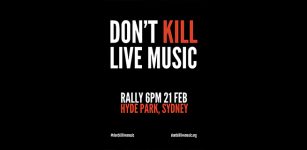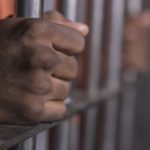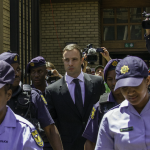Don’t Kill Live Music: An Interview With Festival Promoter Ben Tillman

This Thursday night 21 February at 6 pm, thousands of people from across the state are set to gather in Sydney’s Hyde Park for the Don’t Kill Live Music rally to protest the Berejiklian government’s assault on live music.
Initially, the NSW Liberal Nationals government crippled the music and cultural nightlife in Sydney’s CBD by implementing the lockout laws back in 2014. But, now, it’s taking aim at the music festival industry. And if planned changes go ahead, they’re set to have an impact statewide.
With next to no consultation with those in the industry, the state government is rolling out an overbearing festival specific licensing scheme, as of 1 March, that looks set to devastate events throughout NSW.
And its impact is already being felt. Psyfari cancelled because of the excessive red tape and higher costs it’s set to bring. Mountain Sounds closed at the last minute citing an exorbitant user pays policing bill. And Bluesfest director Peter Noble said his event may have to move interstate.
Too scared to move forward
This all began when NSW premier Gladys Berejiklian established an expert panel last year to investigate music festival safety. No one in the festival industry was involved. Indeed, only the heads of NSW police, NSW Health and the Independent Liquor and Gaming Authority (ILGA) were.
The panel’s calling followed the deaths of two young Australians at the Defqon.1 festival in September. This prompted the now usual calls to permit pill testing services at events. But, Gladys specifically warned the panel not to consider this strategy. And three more youths have died since.
Now, we have the premier’s panel-recommended kneejerk reaction, which is to punish the industry, because the government refuses to consider a tried and tested way to save lives. And the new regime will penalise promoters, musos, DJs and related industries, as well as the wider NSW public.
An early expression of what’s to come was when NSW police hit up the Bohemian Beatfreaks festival organisers with a user pays policing quote of close to $200,000. This followed an earlier quote of $16,000 for the 3,000 person event. And it priced the festival over the border into Queensland.
An industry with clout
The Don’t Kill Live Music campaign is calling on the NSW government to delay the scheme until a regulatory impact statement is completed, as well as the holding of a music regulation roundtable and an industry standard with full transparency for user pays policing and medical services.
The campaign is supported by a huge number of industry heavyweights. Promoter of Yours and Owls and the Farmer and the Owl festivals Ben Tillman is one of those industry veterans calling on the government to take a more measured and informed approach.
Sydney Criminal Lawyers spoke to Mr Tillman about the government’s seeming inability to understand the implications of its own festival licensing regime, NSW Labor’s newly announced music policy and how it feels to see the industry come together as a whole over this issue.
Firstly, you’re the promoter of Wollongong’s Farmer and The Owl festival, which is one of the first festivals that will take place following the implementation of the Berejiklian government’s new licensing scheme.
Ben, what effect are you expecting it to have on your festival? And further the industry as a whole?
We’ve been a part of all the preliminary chats, and supposed education forums. We’re across what they’re proposing.
We’ve previously existed with a caterer’s licence in terms of our alcohol provisions. The local council has previously done the event application or DA process with us.
In terms of Farmer and the Owl specifically, we had already gone through that process and they’ve changed it.
We had three or four weeks to resubmit under the new festival licensing regime with ILGA. We haven’t received it back yet, so I don’t know specifically what they’re going to tell us. So, it’s a little too early to know.
In the immediate, it’s frustrating. The fact that we already had a process that was working. We’d done all the work for it and then we had to do it again.
It’s still very up in the air. If it’s to roll out, as we’ve been told at that education forum, and what they’ve been messaging in the last couple of weeks, I believe it could be potentially quite dire.
They’re proposing an entirely new model and they don’t understand how it’s supposed to work.
It’s riddled with contradiction. It seems fundamentally flawed in the fact that they’re on the one hand saying they want to promote festivals and culture.
But then, at the same time, we’ve run different events through their risk categorisation matrix, and it’s basically impossible for an event with music to come out with anything other than high or extreme risk.
It doesn’t really seem to be very congruent with wanting to support festivals and music. And the whole thing is just unclear.
They don’t understand their own process, because they haven’t done the proper research into it.
So, what does it mean, if they’re about to roll out the new regime in two weeks, and the government is still unclear about it?
It seems ridiculous doesn’t it. Everyone is on the same page with pointing out that it needs to be pushed back. It needs to be delayed in terms of the implementation date.
It’s also becoming extremely apparent that this is all about media hype and the election, as opposed to a real outcome that we as event organisers hold super-closely, which is harm minimisation and safety for patrons.
If that’s what they actually cared about, they would have done the research into their proposed changes. But, because they haven’t done that they don’t even know the impact it’s going to have.
They might start over-resourcing festivals with user pays paramedics, with little to no consultation from a local government, who understands the area, the events specifically and how they relate.
The other demand is, let’s say we’ve got Australia Day and there are five regional events that have been legally required to have an overrepresentation of police and paramedics. What happens to the rest of the town or state, when those departments are already under resourced?
There’s plenty of other problems throughout the rest of the community, especially on days like New Year’s Eve and Australia Day, when there’s stuff going on everywhere.
They just haven’t done their research. And we’ve been calling for a regulatory impact statement.
They just snuck it through as an amendment, as opposed to introducing an entirely new regulatory system.
As you’ve already touched on, the NSW government issued a statement last Wednesday saying that it actually wants festivals to thrive and events with a good track record won’t be adversely affected.
What do you think about these assurances from government?
Well, it seems pretty vague and discretionary. They’re supposed to be bringing in this new system, so that it’s fair and it’s equal across the board. And you have a clear set of rules and guidelines.
But then, they go and say something like that. So, they’ve apparently got the ability to approve or deny something based on the way they feel when they wake up that morning.
It just seems like they’re backtracking due to the fact that their model doesn’t work. So, they’re trying to find a way to argue that they do care, by saying we’re not talking about those events.
But, where is that written down? How’s that’s defined? Which events are they talking about?
Last Friday, the NSW Labor Party announced its official music policy. Labor leader Michael Daley said, “Labor will put an end to the war on music.” The $35 million package includes streamlining the licensing scheme for music festivals and rebuilding the touring circuit.
In your opinion, how do you think live music in NSW will fare under a change in government?
It seems positive that they are wanting to show support. But, they’ve failed to address directly the actual issue that we are talking about here, which is a festival licensing model that doesn’t work.
They said a lot of nice things. And they’re obviously willing to throw a bit of money at it. But, I don’t think that’s the problem here.
The actual issues need to be addressed around how we work with these people to come up with a practical and viable solution that achieves all the goals, which includes festival safety and harm minimisation.
This all began after the two drug-related deaths at the Defqon.1 festival last September. Since then, there has been five deaths. Right now, there are overwhelming calls in the community for pill testing. But, the government refuses to consider this harm reduction method.
Do you think it seems like the NSW government is punishing the festival industry, because it’s not prepared to look at this option?
They’ve obviously taken a firm stance. It’s incredibly dogmatic. And they need to be able to listen to all sides of the table, not just a conservative majority.
To be honest, we just care about the safety of people at our events. And I am personally willing to explore any of those avenues. I feel like it’s pretty dangerous for a government to not be doing that.
I’m not saying pill testing is the solution here. If there’s another arrow in the quiver, that allows us to implement one or two measures that might save a kid’s life or pre-empt some tragedy from happening, then why aren’t we looking at it?
There are enough people out there calling in support for it. There’s enough evidence from professionals. So, it just doesn’t suit their election campaign agenda. And that’s why it’s not being discussed.
The Don’t Kill Live Music petition has been doing the rounds of the internet since mid-last week. It’s now got over 110,000 signatures. And these include a huge list of industry heavyweights.
What do you think about the support this campaign is receiving?
It’s fantastic. What’s been happening in this debate up until now, is that it has been a very segmented music industry. There’s been a lot of individuals with their own thoughts about what’s happening and potential solutions to it.
But, there’s only so much you can do as an individual and one entity. And it feels really special. It kind of feels like the whole industry is galvanising. We’re all putting aside our personal, competitive politics and just coming together with people in the same boat.
This is a lot of people’s livelihoods as well. It’s gotten to the point where everyone has realised that. And this is potentially going to affect not only these people’s livelihoods, but the rest of the state’s access to music and culture.
It’s potentially a national issue with touring music and Australian artists being able to make a livelihood as well.
It’s fantastic that everybody is jumping on board.
And lastly, Ben, the Don’t Kill Live Music rally is set to be held in Sydney on Thursday night. What sort of turnout are you expecting?
Everyone seems to be talking about it. So, hopefully there’s somewhere between 20 and 50 thousand. Hopefully it’s a big turnout, which will again ram home that the music industry is actually a powerful voice and a major employer.
We should be considered when making this sort of policy – when it affects us directly. As opposed to introducing something with such a little amount of research done into it.







